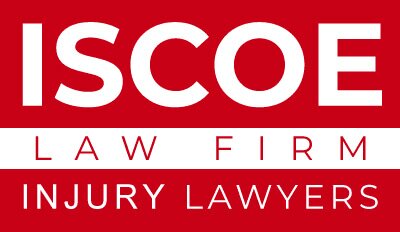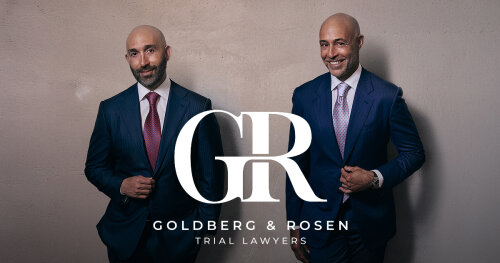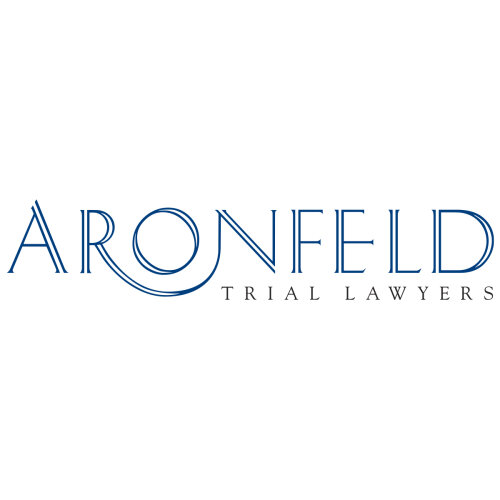Best Brain Injury Lawyers in Miami
Share your needs with us, get contacted by law firms.
Free. Takes 2 min.
List of the best lawyers in Miami, United States
About Brain Injury Law in Miami, United States
Brain injuries can have devastating consequences for individuals and their families. In Miami, brain injury law encompasses a variety of cases, ranging from traumatic brain injuries (TBIs) caused by accidents to injuries resulting from medical negligence. Legal cases often arise from automobile accidents, slip and falls, sports injuries, and workplace accidents. Understanding local laws and the legal process is crucial for those affected, as it can significantly impact the outcome of any claim or lawsuit.
Why You May Need a Lawyer
There are several situations where legal assistance is essential for individuals dealing with brain injuries. These can include:
- Securing compensation for medical bills, rehabilitation costs, and lost wages.
- Negotiating settlements with insurance companies that may undervalue claims.
- Pursuing litigation due to negligence or wrongful conduct that resulted in a brain injury.
- Navigating complex legal and medical documentation processes.
- Protecting the rights of the injured party and ensuring fair treatment under the law.
Local Laws Overview
In Miami and the broader state of Florida, several laws and statutes can affect brain injury cases:
- Florida follows a "no-fault" car insurance system, requiring personal injury protection (PIP) for medical expenses and lost wages regardless of fault in car accidents.
- The statute of limitations for personal injury claims in Florida is generally four years from the date of the accident. However, exceptions exist, especially in medical malpractice cases.
- Florida's comparative fault rule can reduce compensation if the injured party is found partially responsible for the incident.
- Medical malpractice cases are subject to specific procedural requirements, including pre-suit investigations and notices.
Frequently Asked Questions
What qualifies as a brain injury under Florida law?
A brain injury can range from mild concussions to severe traumatic brain injuries affecting brain function. Florida law considers any injury impacting the brain or its functions as a brain injury.
How can I prove negligence in a brain injury case?
Proving negligence involves demonstrating that the other party owed a duty of care, breached this duty, directly caused the injury, and resulted in measurable damages.
What is the role of a brain injury attorney?
An attorney specializing in brain injury law can provide legal representation, help gather evidence, negotiate settlements, and advocate on behalf of the injured party in court.
Can I file a brain injury lawsuit if the injury was due to medical negligence?
Yes, you can file a medical malpractice lawsuit if the brain injury resulted from negligent medical treatment, but such cases often involve stricter procedural requirements.
Am I eligible for compensation if I was partially at fault?
Under Florida's comparative fault rule, you can still receive compensation if you were partially at fault, but your amount may be reduced based on your percentage of fault.
What types of damages can be recovered in brain injury cases?
Damages in brain injury cases can include medical expenses, loss of income, pain and suffering, emotional distress, and loss of life enjoyment.
How long does it take to resolve a brain injury case?
The timeline varies depending on the case complexity, evidence gathering, settlement negotiations, and whether it goes to trial. Cases can take months to several years to resolve.
What should I do immediately after a brain injury?
Seek medical attention immediately, document all related injury details, preserve evidence, and consult a brain injury attorney as soon as possible.
Is there financial assistance available during the litigation process?
Some attorneys work on a contingency fee basis, meaning they get paid only if you win the case. Additionally, pre-settlement funding options may be available.
How do I select a qualified brain injury lawyer?
Choose a lawyer with a proven track record in brain injury cases, check reviews and testimonials, and schedule consultations to find someone you feel comfortable with and who understands your needs.
Additional Resources
For those seeking assistance with brain injury-related legal issues, consider the following resources:
- Brain Injury Association of America
- Florida Department of Health
- The Miami-Dade Public Defender’s Office
- National Institute of Neurological Disorders and Stroke
- Local support groups and rehabilitation centers
Next Steps
If you need legal assistance for a brain injury in Miami, consider taking the following steps:
- Consult with a specialized brain injury attorney to understand your legal options.
- Gather all relevant documentation, including medical records, accident reports, and financial statements.
- Determine if you wish to pursue an insurance settlement or file a lawsuit.
- Consider the timeline and potential costs associated with a lawsuit, and discuss these with your attorney.
- Stay informed and involved in the legal process to ensure the best possible outcome for your case.
Lawzana helps you find the best lawyers and law firms in Miami through a curated and pre-screened list of qualified legal professionals. Our platform offers rankings and detailed profiles of attorneys and law firms, allowing you to compare based on practice areas, including Brain Injury, experience, and client feedback.
Each profile includes a description of the firm's areas of practice, client reviews, team members and partners, year of establishment, spoken languages, office locations, contact information, social media presence, and any published articles or resources. Most firms on our platform speak English and are experienced in both local and international legal matters.
Get a quote from top-rated law firms in Miami, United States — quickly, securely, and without unnecessary hassle.
Disclaimer:
The information provided on this page is for general informational purposes only and does not constitute legal advice. While we strive to ensure the accuracy and relevance of the content, legal information may change over time, and interpretations of the law can vary. You should always consult with a qualified legal professional for advice specific to your situation.
We disclaim all liability for actions taken or not taken based on the content of this page. If you believe any information is incorrect or outdated, please contact us, and we will review and update it where appropriate.













